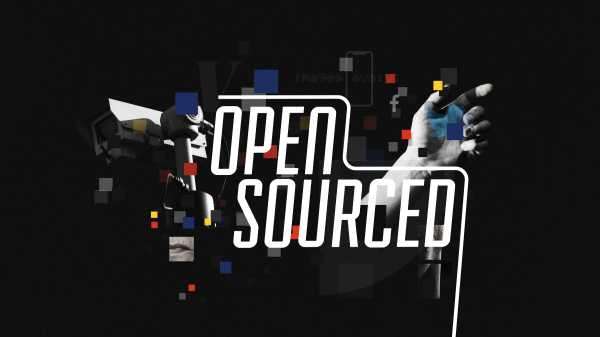
Open Sourced: The hidden consequences of tech, revealed
Recode’s new multiplatform journalism project explains and exposes the hidden consequences of tech — the good, the bad, and the complicated.
By
Samantha Oltman and Joss Fong
Dec 10, 2019, 8:00am EST
Share this story
-
Share this on Facebook
-
Share this on Twitter
-
Share
All sharing options
Share
All sharing options for:
Open Sourced: The hidden consequences of tech, revealed
-
Reddit
-
Pocket
-
Flipboard
-
Email
This story is part of a group of stories called

Uncovering and explaining how our digital world is changing — and changing us.

A reckoning has come for tech — and for the rest of us, too.
Not so long ago, tech inspired optimism. It was revitalizing the economy, connecting people around the world, making our lives more convenient, innovating health care, and even helping to spread democracy. Tech companies like Google, Facebook, and Amazon weren’t quite as big as they are in 2019, and most people seemed to think their rapid growth was a good thing. They were changing the world and they weren’t being evil as they did it, or at least that’s what their corporate slogans promised.
But in recent years, there’s been a shift: Many of us have grown skeptical of tech and the multibillion-dollar companies behind it. We’re still using Google and Facebook and Amazon, but we’ve started to reconsider what we’re signing up for and what we’re giving away when we accept the terms of service for these platforms and use their products. And as this technology gets more and more embedded into our lives, it’s harder and harder to understand the real consequences when we choose between convenience and privacy, or when we consider the differences between the data we willingly share and the data we don’t know we’re giving away.
That’s why Recode by Vox is launching Open Sourced, a multiplatform journalism project supported by the Omidyar Network that will expose and explain the hidden consequences of tech — the good, the bad, and the complicated. We’ll do this with written stories and explainer videos demystifying aspects of technology that are the most controversial and the least understood: artificial intelligence and personal data and privacy — and we will need your help to do it. (More on that below.)
So much of what happens to our data happens inside a black box; we don’t control it and we don’t know what exactly is being collected, who has access to it, and what it’s being used for. And few of us truly understand the artificially intelligent technology that’s being introduced to our lives, from the Alexa smart assistants that are listening in our homes to the systems that are screening our job applications, surveilling our faces, and trying to influence our political discourse — and even our votes.
Because most of us don’t really understand either AI or digital privacy, they’re surrounded with hype and fear. Open Sourced is going to change that. For starters, we’re making a pledge of transparency — decoding our own privacy policy and putting it in plain English. We’ll explain what cookies — those little bits of sticky data that follow you around the internet — really are. In both video and text, we’ll look at the new frontier of facial recognition and explore how surveillance is changing the way we live. We’ll dive into how AI will be used to filter your next job application, and whether it helps level the playing field or raises new barriers. We’ll look at how ad microtargeting on social media platforms and how it could influence your vote in the 2020 elections. And that’s just for starters.
Almost everything in life involves trade-offs. It’s no different with technology. AI has the potential to make our lives more efficient, more convenient, even healthier — but concerns abound over how biases coded into the algorithms powering this tech could make life harder for the most vulnerable people in our society. Tech platforms that store your thousands of photos, send your emails, and seamlessly connect you with loved ones around the world may not cost a cent to use, but they aren’t free: You’re paying them with your intimate data and sacrificing your privacy.
This can all get pretty confusing. Frustrating, even. Having a reflexive reaction to this new tech frontier has become all too common: Some reject the exciting possibilities tech offers us; others blame Facebook, Google, and Amazon for society’s failings; still others resign themselves to living in a post-privacy world where robots will eventually take our jobs and police us. And many of us just assume the introduction of profoundly life-changing technology is still a long way off.
Open Sourced will offer another option: explaining the risks and benefits when it comes to AI and digital privacy so you can make informed decisions. Better understanding can empower us to demand more of tech companies and of our political representatives in regulating these online behemoths, which the law still hasn’t caught up with yet. And as for that life-changing technology, we think it’s already here — it’s just sometimes hard to see.
That brings this all back to a bigger point that our colleagues Kara Swisher and Ezra Klein wrote about earlier this year: Every story has become a tech story. Technology might seem impersonal and impenetrable, which can make its consequences seem distant and theoretical. But what’s physically closer to you, day in and day out, than your phone? What would someone find out about you if they could sift through your email and messaging inboxes, browse all your Amazon orders, or read your Google search history (including the stuff you looked up while you were in incognito mode)?
Whether you’re talking about politics, business, or culture, it’s all connected to tech. And it’s all deeply personal. Open Sourced will illuminate these connections.
Join the Open Sourced Reporting Network
The deeply personal nature of data, privacy, and algorithms is often what makes these systems so difficult to understand. One person’s experience can be radically different from another’s. And that means that to report on them well, we’ll need your help.
The Open Sourced Reporting Network is an email community that will keep you up to date with the latest ways you can contribute to our reporting. (We promise to never spam you.)
The tasks we’ll need help with will change, as our reporting and our stories evolve. But we’re starting at ground zero: What are your biggest questions about the technologies you use every day? We want to hear your story about how Google Maps or Uber already seemed to know where you wanted to go, or how that Spotify playlist suggestion felt oddly dead-on. We want to know if you’ve been seeing particular online ads all of a sudden, or if LinkedIn seems like it’s trying to tell you something. We can’t promise all the answers, but we’ll ask the right questions and report what we find out. That’s our promise to you.
Please subscribe to join us on this Open Sourced journey, as we reveal tech’s hidden consequences together.
Open Sourced is made possible by the Omidyar Network. All Open Sourced content is editorially independent and produced by our journalists.
Sourse: vox.com






